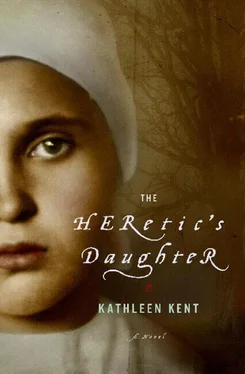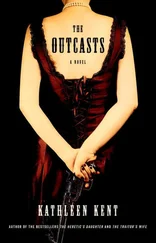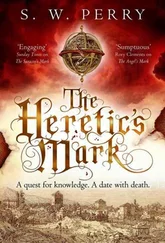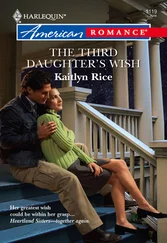As soon as I closed my eyes I began to dream, and in the dream I saw Andrew standing on a riverbank. It must have been spring, for the light was so bright and so yellow-hazing that all of the grasses and trees appeared indistinct and wavering, like melting butter. He was wearing Father’s long flintlock strapped across his shoulder and he was poised with his arms around Tom and Richard. He looked up, his face good and moon-simple, and smiled broadly, as though he saw me standing on the other side of the river. He opened his mouth to speak, but before I could hear his words I felt my shoulder being shaken, and I woke to Tom’s tearful face close to mine. I had fallen asleep slumped over Andrew’s chest and I started to cry with the awareness that Andrew had gone.
I put my arms around Tom but he pulled my hands from his neck and said, “Sarah, look and see.” But I did not want to see Andrew’s face crumpled into death. Tom shook me by the shoulder and said my name again. I looked into his face, expecting to see my twin in mourning, but Tom’s face was not closed in grief. His eyes were slanted with joy and his mouth was upturned, laughing in disbelief. He said to me, pulling up the sleeve on Andrew’s shirt, “Look at his arm.”
And I looked and saw that the red mark had begun its retreat back down Andrew’s arm, down from the shoulder to the elbow and from there to his wrist. His breathing was deep and regular, and when I felt his head, it was cool and covered with a fine sheen of sweat. When he finally opened his eyes, he had returned to the wit of a child, his smile foolish, his only request for soup and some bread.
When the sheriff came down later in the morning, he strode into the cell to look at Andrew. He stared at me for a few surprised heartbeats before saying, “If that’s not witchcraft, then there never was.” As he returned to the door, he told us that Andrew could stay one more day and then he would have to return to the men’s cell. As soon as his footsteps faded up the stairs, I ran to the short bars and called out across the corridor to Richard and Mother, “Andrew is alive. He is alive.” For the first time in many days their answering voices made me feel enough joy to press back the hopelessness of Salem prison. And for a few brief minutes I could forget that there were only six days left for my mother to dream or wake or feel anything at all.
The day was Sunday, and so a morning prayer meeting was held in the women’s cell. Goodwife Faulkner was asked to lead us all in prayers of thanksgiving. When Father came at noon, he brought us food and washed clothing and more clean water. He grabbed the bars hard when Tom told of the doctor coming to take Andrew’s arm, and I thought he would pull them from their casings. I propped Andrew’s head higher into my lap so that he could speak, and his first words in waking were “Father, I can go out hunting with you now,” and Father said to him, “Son, you shall be the first of your brothers to fire the flint.” When his time in the corridor was finished, he told us he would be back on Tuesday and every day from then on, until Friday. Well into evening my brothers and I held hands, and our fingers were folded together as strongly as the links in our chains.
PEOPLE WILL ASK those who have lived beyond terrible trials, “How did you come to get beyond your loss?” as though the survivor who suffered the loss should simply stop up their nose until breath is starved from the lungs. It is true that some people will lose their desire for life and refuse food and drink after the death of a beloved, or if there is too much pain and injury to the body. But a child, so recently come into the world from the void of creation, can be more resilient than the strongest man, more strong willed than the hardiest woman. A child is like an early spring bulb that carries all the resources needed within its skin for the first push through the soil towards the sun. And just as a little bit of water can start the bulb to grow, even through fissured rock, so can a little kindness give a child the ability to push through the dark.
That kindness came in the form of Dr. Ames. When he entered our cell on that Monday, the 15th of August, I did not at first recognize him. He came in holding a kerchief to his nose and carrying a fitted calfskin bag. I thought at first he was a minister, as his coat was long and dark and he wore a sober, wide-brimmed hat. He soon put the cloth away into his pocket and I saw that he was a young man, perhaps no more than thirty, with a narrow, even nose and dark eyes banded above with thick black brows. He was greeted by several of the women, who reached out and swarmed around him, beseeching him for aid. He calmed them all with a few words and made his way around from woman to woman, stopping here to look at a wound and offer salve, or stopping there to hold a hand and talk for a while. With each supplicant, he would speak to that woman as though she were the only one in his presence, and more than a few would clasp his hand to her face and offer blessings for his gentle care. When he finally came to us, he knelt down and said kindly to Andrew, “Well, then, here is a miracle I can see for myself.” He smiled at Andrew and Andrew returned the smile and held out his arm for the doctor to see more clearly.
As he examined the arm, he said casually to me, “You do not remember me, do you, Sarah?”
I was startled to hear my name and looked at him more closely. He turned his face to me and said, “I went to your home with the message from your uncle, Roger Toothaker.” And then it came to me: the young doctor from Haverhill who had been to Boston to treat the prisoners there. He was the one who had brought the note to Father. The note Father had read and then thrown into the fire. He quickly unpacked dressing and ointment from his bag and wound it around Andrew’s wrist. When he was finished with the binding, he treated Tom’s chafed skin and then turned to my raw and burning wrists.
“I know your father,” he said, wrapping strips of cloth around my wrists under the metal cuffs. “Or rather I should say I know of him. He is a person often spoken of in Boston. In certain fellowships.”
I looked at him blankly and he continued, his fingers gentle and cool on my wrists. “Do you know how your uncle died?”
“It is said he was poisoned,” I answered, uncomfortable with his question. “He was poisoned by… someone,” I ventured, and I looked at his eyes with uncertainty.
He then held my hands in his slender ones and said quietly, “No, Sarah, not poisoned by someone. But by himself.” When I started to open my mouth he said quickly, “I know what people have said about your father. It is true that he came into the cell the day your uncle died. It is also true that your uncle pleaded with him for forgiveness. He had been tortured by his inquisitors and knew that through his own weakness he would be forced to cry out against you, the children. He told me he repented of what he had said against your mother and that he would rather die than bring more harm. This was all written in the note to your father. But I do not believe your father was the cause of his death.”
I stared at Tom, whose eyes showed me that I was not alone in harboring the belief that Father had done murder for our cause. I remembered Father once saying that Uncle had made good on a bad end, and I asked, “What do you mean?”
The doctor dropped his eyes and said, “Your uncle was under great distress and complained to me that his heart was failing. He asked of me to give him foxglove.” I knew only that foxglove was a potent poison, and when I looked up at him, he said, “Foxglove in very small amounts is used for soothing an unsteady heart. In larger amounts it kills within hours, but unless you have a practiced eye, the death will often appear as though the heart stopped of its own accord. He asked for a large measure of it some days before his death, and because he was a doctor I bowed to his wisdom and… I gave it to him. But before I took my leave of him for the last time, I said to him, ‘Be very careful to take only so much as you need.’ And he replied to me, holding up the little bag of herbs, ‘All that is here is what I need.’ ”
Читать дальше












